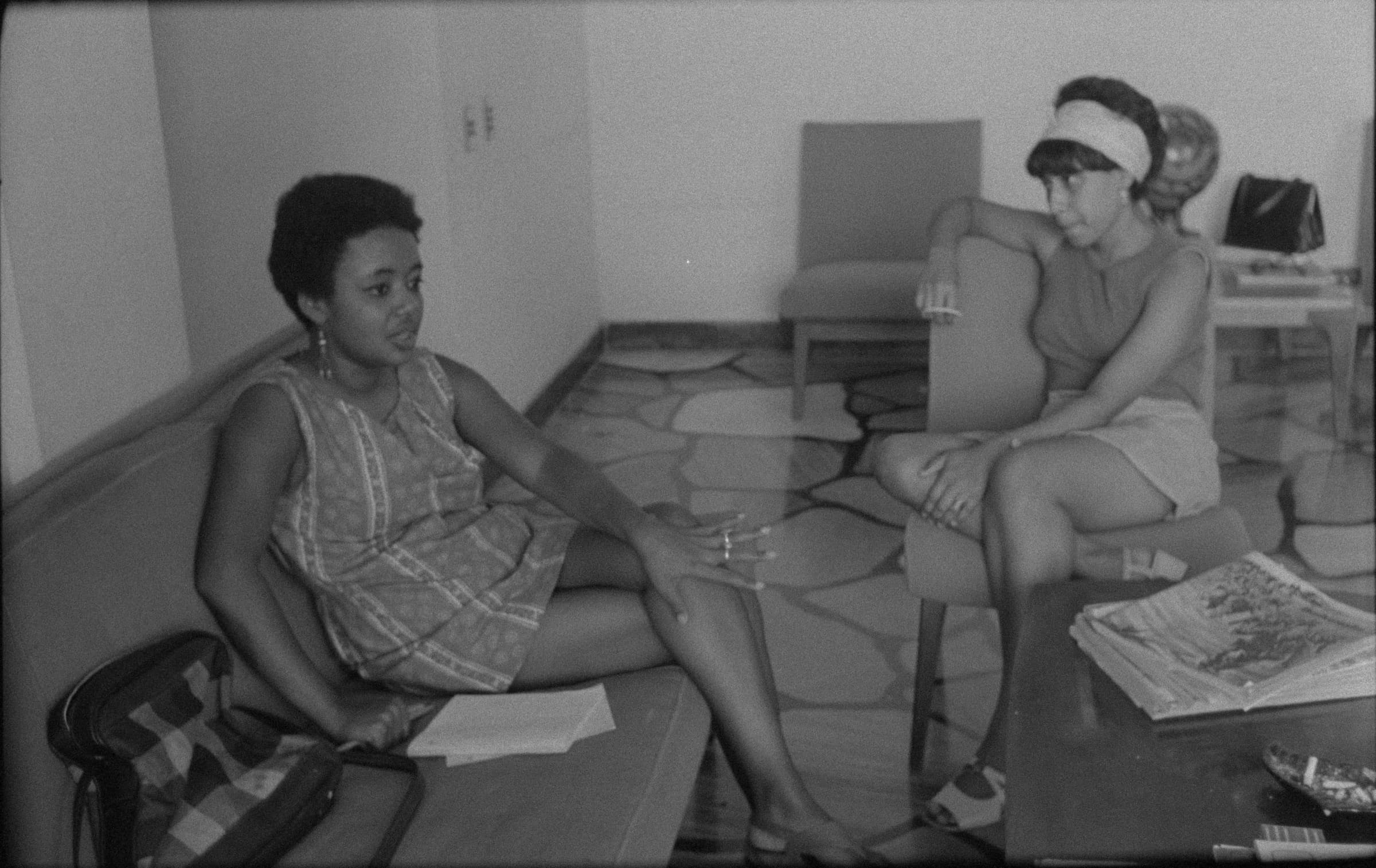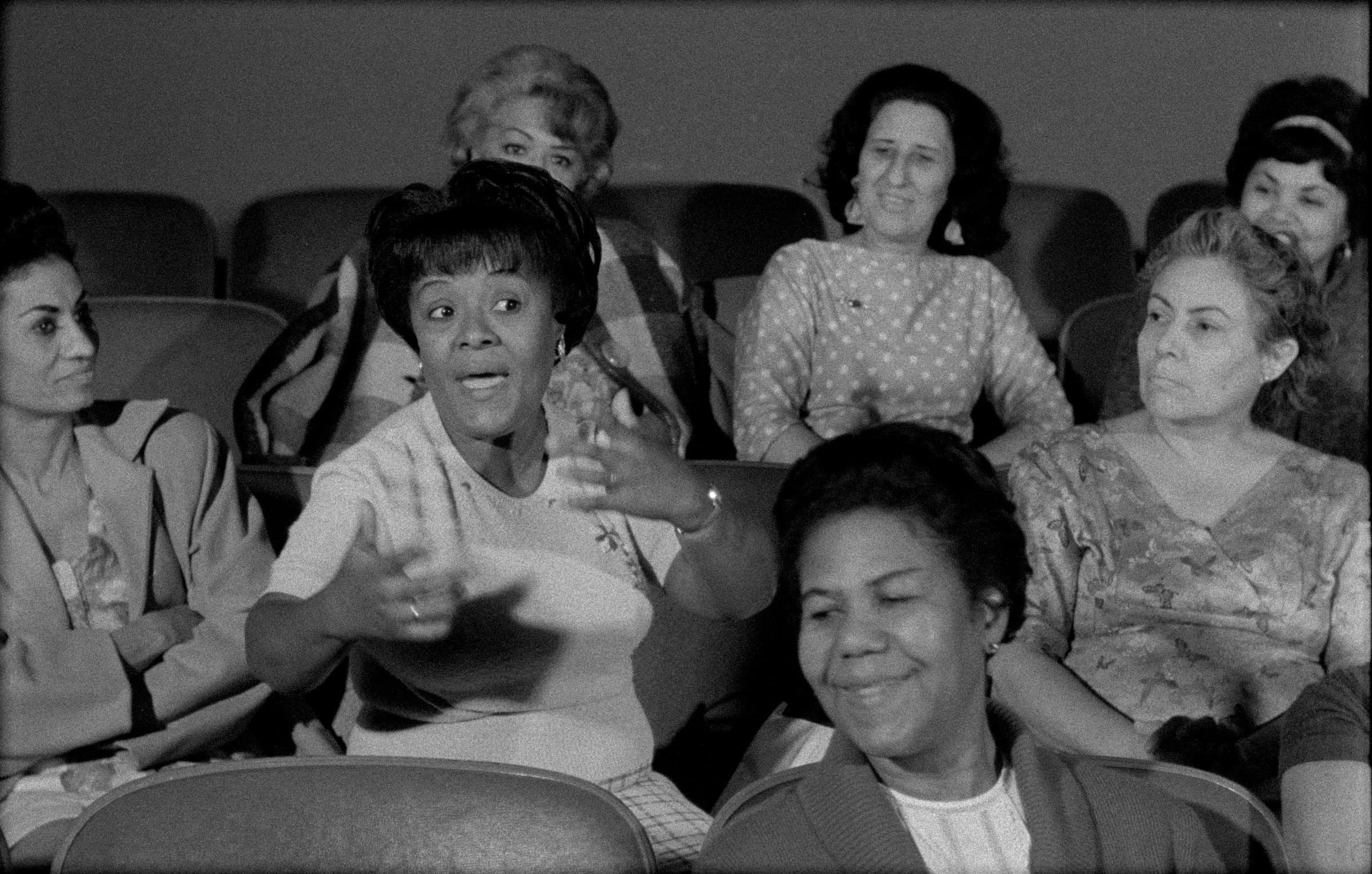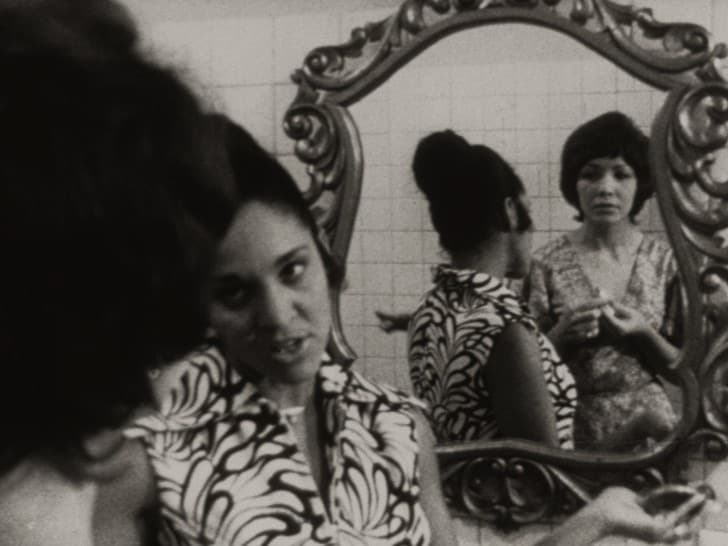
Spotlight on Cuba: Writing Sara Gómez back into militant film history
Programmer Luna Hupperetz reflects on the thinking and curation behind our dedicated program Spotlight on Cuba.
“It is early. A woman bustles in her home, a mother dresses her son to go to kindergarten or granny’s house. That woman is you! That mother is you! You that can’t wait for the hour to go to your job, factory, or agricultural farm. You just recently started to work, and you have occupied your place in the construction of a new society. New horizons!” – Mi aporte (My contribution), 1972
By exploring the work of Cuban filmmaker Sara Gómez (1943-1974), I found myself entering a new domain in the corpus of 1960s Latin American revolutionary cinema. Beyond a socialist political didacticism, her cinema acts as a charismatic, (auto-)ethnographic conversation piece in the fight for revolutionary equality.
In browsing through her films, made over the course of twelve years amidst the heydays of Cubans new socialist horizon, I entered a repository of popular agency. Her cinema had me walk a thin red line between the dictative, rhythmic, codified beliefs of anti-imperialist cinema and the cinéma vérité quality of bearing witness. By putting herself into the frame—as reporter, filmmaker, discussion partner—she marked the cinematic apparatus (En la otra isla). She does so through composed family portraits with an ethnographic sensibility (Una isla para Miguel and Guanabacoa: Crónicas de mi familia) and by orchestrating intersectional debates before such a term was even officially coined (Mi aporte).

Still: Mi Aporte by Sara Gómez
Luna Hupperetz“I thought I could write Gómez back into a militant cinema history.”
After watching her films, I was driven by a peculiar sense of historical probability. I accessed the Dutch newspaper database looking for a trace of Sarita within the Dutch militant cinema circuit of the ‘70s.When encountering a 1973 film program in Amsterdam's Rozentheater that included the title Isle of Youth, I thought I could write Gómez back into a militant cinema history. However, through some further investigation this film turned out not to refer to Gómez’ trilogy on the 'Isle of Pines’ (1968-1969). In fact, it turned out to be an American New Left Newsreel production reporting on the same island, three years later.
Luna Hupperetz“Names of white male filmmakers did not fade away as easily as did the names and works of female filmmakers of color.”
The radical film networks of 1970s Global North were highly inspired by militant and third cinema of the Global South. As such, the Cuban films from ICAIC (Cuban Institute of Cinematographic Art and Industry) played an influential role in the political and aesthetic imaginary of the 1970s European New Left. Western militant cinema collectives were proud to present filmographies of most of Gómez’ male colleagues. Although the prevalent ideals of collective filmmaking in the 1960s and 1970s sometimes make it challenging to identify individual filmmakers, the names of white male filmmakers did not fade away as easily as did the names and works of female filmmakers of color.
In my counter-archival attempt, I discovered that it was the New Leftist Newsreel collective—an American filmmaking collective heavily inspired by Cuba’s revolutionary noticieros—that ultimately overshadowed Sara Gómez’s testimony on the Isle of Pines, leaving her contributions largely absent from the European militant cinema memory.
The first part of Gómez's trilogy (En la otra isla) was screened at IDFA 2023, and the other two films will be screened this year (Isla del Tesoro, Una isla para Miguel). The Isle of Pines is rooted in Socialist revolutionary ideals, yet, her treatment of the island's youth goes far beyond the Socialist cosmopolitanism and voice-over reportage style used by The Newsreel collective. Her trilogy exemplifies a participatory documentary practice, as her interviewing skills and aesthetic tactics allowed her to intervene in, rather than merely report on, the material and emotional realities of the youth work camps on the Isle of Pines.
Gómez's obliteration becomes apparent when looking at the distribution history of her work. Most of her films were commissioned either by ICAIC, Cuba’s labor unions, or women’s federations; as such the circulation of her work was highly dependent on these institutions' willingness to make her work visible. It was thanks to a new generations of Cuban filmmakers (such as Ricardo Acosta) and initiatives like the Vulnerable Media Lab, that Gómez’s work is now being celebrated at IDFA and appreciated in a new context, alongside the work of contemporary filmmakers.
Not only does this program allow for a writing back into militant cinematic history, but it also serves as an invitation to let her work speak to a global contemporary rubric of neoliberalism.
If I may address readers from my own generation(s), dear millennials and Gen-Z, let her work be your socialist crash course! As I’m watching her film Extra hours and voluntary work, I see how her take on ‘guerilla work shifts’ allows for new readings in the context of today’s anti-work movement. Aside from her focus on labor, her work is guided by an interest in her Afro-Cuban culture—be it through music, storytelling, or trade. In a country where it was argued that there were no longer Black Cubans or White Cubans—only revolutionary Cubans destined to become expressions of the New Man—Gómez directs her camera towards Creole culture. As with her short film Y Tenemos Sabor, that focuses on the Cuban Afro-Hispanic musical instruments, she allowed me to listen to her film’s soundtracks as stories of creolization.

Still: De cierta manera by Sara Gómez
Traveling the island with Sarita, through occasional flirts with the tourist film genre, is a utopian voyage that ended too abruptly. In 1974, Sara Gómez died of an asthma attack at the age of thirty-one while in the process of making her first feature De cierta manera. By joining me in watching this marathon of shorts, we get closer to a potential decolonial film history, actualizing the feature films she never had the chance to make.
